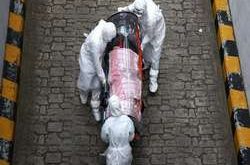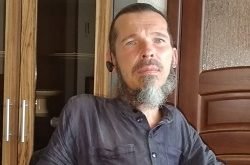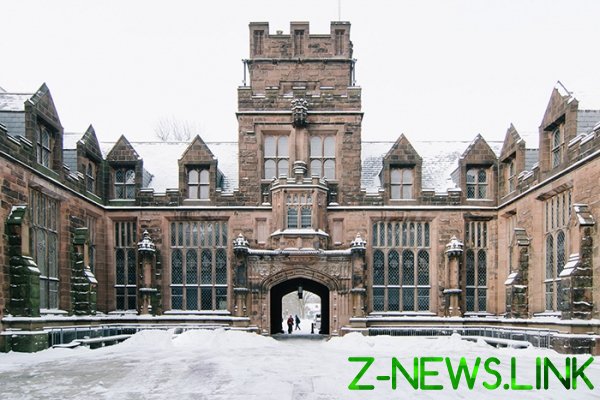
If you examine the lives of American scientists on “the big Bang Theory”, there is a feeling that it is entirely composed of hunting for rare rooms comics, video games, the use of lasers to heat up soup, and robotic arm — the quality of the car to hug. All this dilute timid attempts to build romantic relationships and flirting with Stephen Hawking. While Americans won the Nobel prize, more than 350. To achieve such results, leaving only the comics, definitely will not work. Then what is the secret of success?
With the move, we can distinguish three important components. The first is a proficient hunting for brains. Clever boys and girls from all over the world come to the States for a reason: they understand that in this country a chance to realize their bold ambitions quite high. The second is the preservation of the traditions of education. Despite the fact that the US — the country is relatively young, many universities out there have a century (or even two hundred years) history. And finally, the third is a healthy American pragmatism, coupled with irrepressible American optimism. With high probability we can say that the majority of young scientists from the States to declare that science is cool. And that such complicated processes are perceived as an exciting adventure, there is absolutely nothing wrong with that. Remember once again about the number of Nobel laureates.
So today, let’s try to look at the life of American students and scholars, comparing it to the Belarusian realities. This will help our compatriot, already long time living in the United States. She will be one of the speakers at the conference TEDxMinsk, which will be held in Minsk on March 30. The heading “Opinions”, we recall, is the General information partner of the event.
Who is it?
Anastasia Lipnevich, Professor of psychology at new York University (The City University of New York), Director of development of scientific researches of the teaching staff of the University, member of the scientific and technical Council of the new York Department of education. PhD in cognitive psychology. If that’s not enough, we note that Professor Lipnevich lectures as a visiting Professor at Columbia University in new York, the Universities of Constance, münster and fry in Germany, the University of Thurgau in Switzerland, the University of Otago in New Zealand, National Institute of education Singapore an Autonomous Institute of Madrid Spain and others. She is also the author of over 40 articles in major international scientific journals. Professor Lipnevich is in the editorial boards of five leading scientific journals and is a member of expert committees of several universities.
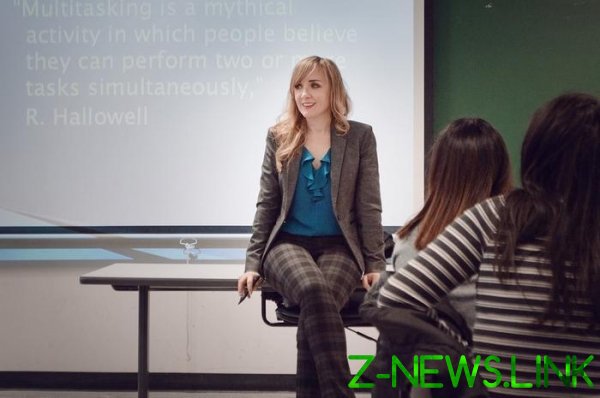
— Let’s start with the differences in the construction of universities that you caught my eye immediately after moving to the United States.
The most important difference is that science and higher education in the United States are inseparable. In the professorial team includes scientists who are engaged in scientific activities. The process and results become part of the academic program, which can not only to observe but also to participate in research.
In good American colleges and universities virtually all professors have a doctorate. The exceptions are highly specialized discipline, which may involve, for example, a programmer is practice.
Another critical difference is that in Belarus students go to University to study directly to a particular specialty. In the States you rather go to University, izjavlja desire to obtain a set of fundamental knowledge. You can write what you want to be, but most likely your opinion will change. The first two years you get here is a core — the core of knowledge that includes General education subjects. For example, two subjects from history, two from mathematics, two from statistics and so on.
And very often it turns out that the student comes to the University with full confidence that he wants to become a businessman, but taking a course in chemistry, understands that this is his calling. Some of my students for two years, four times changed his opinion about who you want to be, but once they did, they was really close.
Following two years of College involve deepening and concentrated study of the narrow specialization that was selected. While young people are no longer as big of a mandatory group of objects, they retain greater autonomy. Students can structure their own education, and thus they are almost always very motivated. For example, the listener may refuse to study the chosen course in the first two weeks of the semester, replace it with another or take the same course in another semester. This happens when students understand that insufficiently trained, or they are not suitable Professor, time, etc.
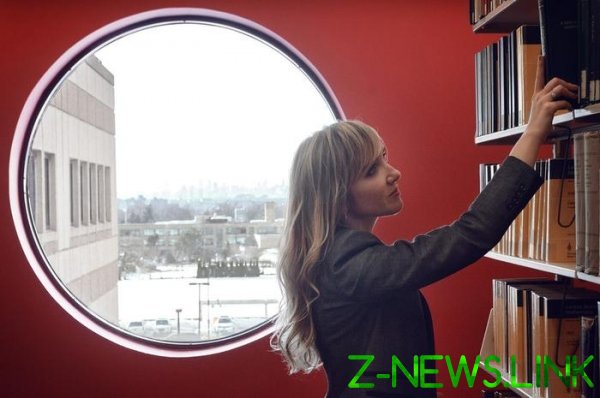
Finally, another factor is the constant presence in the educational system of the international language. English published scientific works and textbooks in the US, UK, Australia, New Zealand and many Scandinavian countries. Leaves a huge number of books until translated into the Russian language, largely lose their relevance.
— In Belarusian universities the problem of motivating students in the learning process, is very serious. Many people go to lectures just to serve the time. You can often see those who do not plan to work on get profession initially. This is a problem for States?
— Education in the US paid to get into a good University is very difficult, therefore, to learn to check all the question. Students are perceived as customers of universities and colleges, and clients need in every way to protect, help and generally create an atmosphere of comfort and interest. Personally I was shocked the first time after the Belarusian University. The first course that I began to read to the students, statistics — students of his, as a rule, I’m afraid.
Plenty of time left to figure out how to enter in the lectures entertaining component. I had to make two and a half hours of flying fun, with a twinkle. Only with time I realized that this, indeed, is the work of a teacher — it needs to interest the student and convey information in a form that he would like to study further.
— In the States going assessment of the work of the teacher?
— First and foremost, it is estimated by those for whom it works — by the students themselves. After each course students fill in a detailed questionnaire, the summary displays the total rating of each teacher to see the comments of the listeners about his work. Interesting point: practice shows that the high assessment of the students not the teachers, lectures are easy and the ones that provide the most complete and useful knowledge, even if they receive a lot of strain.
Moreover, lectures that lead young teachers regularly come from more experienced colleagues and make a detailed report. It is important to note that this is not just a criticism (although it can be), but rather detailed advice about how to make the learning process more effective and exciting.
Science is not in place, regularly publish new studies and updated study material. For the most successful professors is the norm, they inform students about their research and about developments in their discipline.
— But in addition to feedback from students and colleagues there and other incentives work better?
— Of course. For example, good salaries, flexible hours and the opportunity to travel. Furthermore, in American universities there is such a thing as a “lifetime position”, guaranteeing you a well-paid workplace is one of the highest awards of merit for an educational facility. We can say that some teachers just relax when you get such conditions, but on the quality of their work is not affected. You have to understand that the bar for obtaining these preferences are so high that reaching it, people just can’t work carelessly.
Teachers give a lot less lectures compared with their colleagues from Belarus. For example, I usually scheduled 5 hours a week. It is expected that a University Professor most of his time to work on research, to contribute to science.
It’s fine even with that, the students almost certainly will gain knowledge from a person who is directly involved in the development of teaching the subject. Simply put, it is a living science, not a set of archival data, which today can simply by looking in the Internet. I regularly tell my students about their research long before they appear in scientific journals.
— What are the priorities in your work?
— I have 60% of their time to do science, 25% is allocated to teaching, the rest for public work (work in editorial offices of journals, advising students, etc.).

— Whether strongly differ the format of lectures in Belarus and the US?
— During my studies in Belarus lectures were often in the first monologue of the teacher. In the United States and European universities is a dialogue, occasionally degenerating into the discussion. Distance between Professor and student is not so great as ours. The audience is quietly asking questions during and after lectures. In truth, the number of questions by email that I get, you’d be amazed. The students argue, argue and defend their point of view. This education literally sharpened by the fact that the students asked questions, exhibit curiosity, inquisitiveness.
Belorussian, more austere and authoritarian form of teaching resembles that which is now prevalent in Asian countries such as Singapore, where the words of the teacher are not in dispute, but questions may be asked only to clarify what he heard. It should be noted that the level of knowledge, for example in the field of the exact Sciences in Asia, as in Belarus, is quite high.
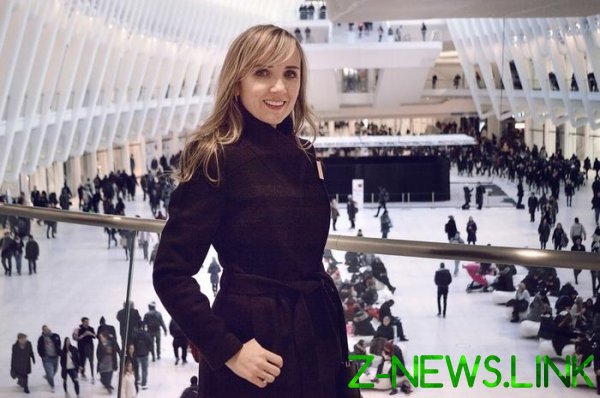
Now in many international research scientists from Singapore are in the leading position, which is associated with great subject knowledge. But the main problem for their system of education — the inability to go beyond. Therefore, the country today are attracted to “cocky” scientists from around the world, so they are a bit stirred up the Orthodox education system.
— Can you imagine that in US universities who will study or teach for show? The most daring criticism of the education system in Belarus say that its a global problem is that a lot of low-rating universities give their students senseless and useless knowledge that even impossible to apply in practice.
— If you look at the UN report, you’ll see that Belarus is a world leader in the number of universities per thousand people and the enrolment rate for tertiary education of the population. Why the number does not translate into quality?
I know that Belarus is absolutely normal to have two higher education, and often you can find people with three higher educations. In USA such a person would have caused great interest, delight and surprise. On the one hand, it is worthy of respect (because there are to get higher education really hard), but on the other hand would be a legitimate question: “Why?” Why did you spend so much time, money and effort?
If I were asked what to do with institutes or universities, which provide low-quality or useless knowledge, I would definitely advise them to close. I can assume that in some areas of Belarusian science and education would be helpful instead of a few universities with a similar profile to leave only one, investing the money released in its full development.

At the time, the Finns, in an effort to improve its education system, simultaneously shut down all universities that prepared teachers, leaving only two. To get into these universities can applicants with outstanding knowledge and assessments. In a similar way the development went and Singapore: they have only one University, which prepares teachers to do and there can be only graduates are included in the top 5 percent at the end of school.
It is important to note that within my discipline information for an objective assessment of the quality of education in Belarus is very little. She is not involved in any international study to assess the quality of secondary and higher education (in contrast to, for example, Russia or Kazakhstan).
The result is a kind of vicious circle. In Belarus there is little practical research, because it does not have the money. You can make money by participating in numerous international research programs. However, to get into these programs Belarusians can not because of the lack of objective, internationally accepted proof of competence of our scientists.
I can’t understand why Belarus is not involved, for example, in the PISA (international program for the assessment of educational achievements of pupils) test, which now covers 86 countries and allows to assess the literacy of students and the ability to apply knowledge in practice.
— Let’s talk about state and private capital in education. How best to invest in universities and whether they earn?
In USA there are private and public universities. In addition to tuition fees, they are financed from the Federal budget or exist on private donations. A very common practice — sponsorship from wealthy graduates who have already achieved a lot in life but continue to support their alma mater. (A similar tradition is prevalent in Britain.) For example, Princeton can boast of such statistics: for a student the Bank is about a million dollars. It is clear that with such a huge reserve of money you can take plenty of time to science. Many universities here are rich institutions in which to invest all the state, local authorities, private individuals.

The national science Foundation (NSF) administers a huge number of grants for various scientific disciplines. To obtain such a grant is a great honor. Thus the state supports the scientific activities, regardless of affiliation of scientists to public or private universities. In addition to NSF, there are other funds with their grant programs.
— Very popular in Belarus the issue of misoneism in the education system. How to overcome this Vice? Very often scholars or teachers to stay in their seats, not allowing to grow young. As this fight in the successful universities? This story also repeatedly ridiculed in “the big Bang Theory”.
A scientist who received great services to the University life position, to fire really almost impossible, and sometimes among employees can meet footage, looking at that you wonder: “How are you still working?” But knowing the track record of the scientist, you know what a special relationship he probably deserved. These people have already paid for their status, and the administration, working with them, shows creativity. A few of these frames we have in the Department: they are given administrative roles, trying to draw directly from teaching, for example, designate responsible for the admission of students.
This, of course, the problem is that, being a tradition, not yet solved effectively.
Some universities strongly persuaded scientists with insufficient number of scientific papers to retire, offering them an impressive “Golden parachute”, they say, goes, then we’ll pay you the rest of your life with a good pension plus your pay in the year following dismissal.

— What factors hinder the Belarusian system of higher education and science firmly take root in the international education movement? When our diplomas of universities will be taken seriously abroad and that it will give the country (and not their owners who rush to get these diplomas to go abroad)?
— We cannot say that the Belarusian diplomas are not listed abroad. I graduated from the Belarusian state pedagogical University. Maxim Tank on a speciality “psychology and foreign language” and only after that went to grad school in the US, my degree counted! However, frankly speaking the modern psychology I had to learn from scratch, because knowing all the classic research, I had no idea what and how to study modern science. It is, in fact, eloquently shows the main problems of Belarusian universities.
© 2019, paradox. All rights reserved.



